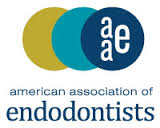When speaking of diabetes, we tend to focus only on its most obvious effects on overall health, such as neuropathy, circulation problems, and even the inconvenience of testing and using insulin. Until recently, little attention had been paid to the fact that diabetes poses a major threat to your oral health. Dr. Todd Pizzi of Modern Dentistry of Shrewsbury explains the strong link between diabetes and the health of your teeth and gums, and how you can avoid tooth loss in Shrewsbury, MA.
Diabetes and Dry Mouth
Dry mouth, one of the most common side effects and symptoms of medication and medical conditions, also happens to be one of the most potentially destructive. Dr. Pizzi attributes this to the natural properties of saliva. Much like mouthwash, saliva flushes food and bacteria from on and around your teeth, tongue, and gums Your saliva also contains enzyme that neutralize acids within your mouth–acids that eat away at your tooth enamel. Diabetes itself is capable of causing dry mouth, as are many of the medications commonly prescribed to keep your blood sugars in check.
Increased Risk of Periodontal Disease
Multiple studies confirm a powerful link between your body’s ability to manage its glycemic response and the health of your gums. The relationship is two-way: If you are diabetic and have poorly controlled blood sugars, you are more prone to developing severe periodontal disease. If you have been diagnosed with periodontal disease–diabetic or not–you have a greater risk of experiencing problems with glycemic control. If you detect symptoms of periodontal disease, it’s best to report them both to your dentist and your physician. These include:
- Puffy, red gum tissue
- Gums that bleed while you brush or floss
- A bad taste in your mouth or unpleasant breath that lingers even after brushing your teeth
- Teeth that appear to have grown somewhat longer, an effect of gingival recession
Dr Pizzi cautions that periodontal disease is the leading cause of tooth loss among adults in America, and it isn’t limited to any single age group. However, he adds, it is more common among older adults and women. If you have been diagnosed with gingivitis or advanced periodontal disease, Dr. Pizzi may recommend more frequent deep cleaning, which can include ultrasonic scaling and antibiotic treatment.
Does your medical condition increase your risk of tooth loss? To learn more about oral-systemic health, or to schedule an appointment with one of our dentists, contact our Shrewsbury, MA dentist office at (508) 842-8838. We welcome patients living in Shrewsbury, Worcester, North and South Grafton, Millbury, Boylston, and the neighboring communities.










